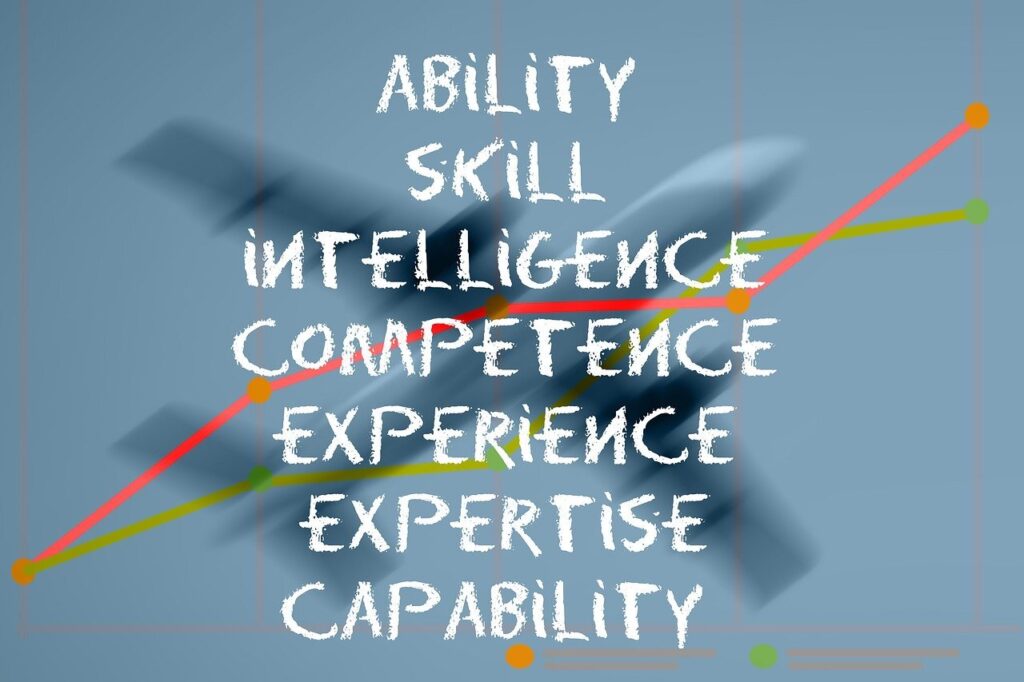The skills that you have on your CV is considered as the main focus of the recruiter. Some skills should be at the priority of the students so when they graduate, they should be the master of those along with academic excellence having a skillful background is also considered a perfect candidate for the job.
These are generic competencies and behavior that shows your capabilities in your CV. the fundamental abilities that will enable you to do well in any career. Since you may build them over time and use them as your career progresses, they are commonly referred to as transferable skills. Consider them your ticket to professional success. When creating your CV or application, you will need to use your job experience to demonstrate these abilities.
At University of Rawalpindi, we have taken initiative to help our students excel both academically as well as professionally also. Therefore, we intend to launch short courses, workshop to masters our students in these desired skills so that they can excel.
Top 10 Skills for Your CV that Graduate Recruiters Want to See

1. Commercial Awareness
This is about knowing a business or its administration works and what makes a company stable understanding that what the organization wants to achieve using its products and services and how it wants to competes with its competitors. Recruiters are going to have much more confidence in that graduate who is much more aware of the organization, especially its products and services.
For example, Graduates or job incumbent are asked questions in interview such as what do you know about our company, Why are you interested in joining our company when the graduate who is seeking a job can only know the answer to this question if they are commercially aware.
2. Communication
It consists of both verbal and written communication and listening skills. It consists of the phenomenon of 7Cs which stands for clear, concise, concrete, correct, coherent, complete and courteous. Having effective communication skills means being able to listen to the views of others and able to communicate your message effectively. Those employees who are going to recruit you will check your communication skills through your CV. Different employers will place different type of importance on you based on your communication skills.
3. Problem-Solving
This category is the most briefed one as it contains skill set such as analytical thinking, innovation, problem-solving, analysis, creativity, originality and initiative, and finally reasoning, problem-solving, and ideation. The ability to solve complicated problems and think analytically is not something that most individuals are born with rather, it is a skill that we acquire as our careers develop. Learning to evaluate data can be simple and enjoyable, even though having an analytical mind is helpful. Additionally, problem-solving calls for innovation, initiative, and ingenuity. Taking a unique and imaginative approach promotes innovation and allows one to view issues with an open mind and new perspective. The same level of thought that caused our issues cannot be used to solve them.
4. Digital Literacy
In our digital age, being tech-savvy is almost as important as knowing the basics of reading and writing. Understanding basic software, such as Microsoft Office or Google Workspace, is essential for most roles. Familiarity with these tools enhances efficiency and productivity. From collaboration platforms to project management software, online tools streamline work processes. Graduates should experiment with these tools to improve their efficiency.
5. Teamwork and Collaboration
Working well with others is fundamental to achieving common goals. Effective teamwork requires strong interpersonal skills, such as empathy, active listening, and respect for others’ ideas. Disagreements are inevitable, but handling them professionally strengthens team dynamics. Learning conflict resolution skills can help graduates navigate complex situations.
6. Leadership and Initiative
Employers value candidates who can take the lead and motivate others. Leadership doesn’t require a title. Graduates can demonstrate initiative by leading group projects, showcasing their ability to manage and inspire others. A good leader inspires those around them. Graduates should learn ways to encourage their peers and help them overcome challenges.
7. Emotional Intelligence
Emotional intelligence, or EQ, has become a sought-after skill in today’s workplaces. Self-awareness allows graduates to recognize their strengths and weaknesses. Understanding one’s own emotions and how they affect work helps with personal and professional growth. Graduates with high EQ can manage stress and maintain professionalism in difficult situations, a trait highly valued in fast-paced work environments.
8. Networking Skills
Networking can open doors to career opportunities and valuable mentorships. Graduates should take advantage of university events and online platforms like LinkedIn to connect with professionals in their field. Social media can be a powerful networking tool. Graduates should use it to build a positive professional image and engage with industry leaders.
9. Project Management
Project management skills allow graduates to handle complex projects with confidence. Effective project managers are skilled planners. They know how to set goals, allocate resources, and monitor progress. Completing tasks on time is crucial in any workplace. Graduates should practice setting realistic deadlines for themselves and managing projects to completion.
Conclusion: How These Skills Build a Strong Foundation for Success
Mastering these skills during university provides graduates with a powerful toolkit for success. With communication, adaptability, problem-solving, and emotional intelligence, graduates are prepared to meet the challenges of the workforce. By prioritizing skill development, graduates can set themselves up for a fulfilling and successful career journey.
Read More Here!
FAQs
1. How can students improve their communication skills while in university?
Students can join clubs, take public speaking classes, and practice writing to strengthen their communication skills.
2. Why is emotional intelligence important for career success?
Emotional intelligence helps individuals manage stress, build relationships, and maintain professionalism, all of which contribute to career success.
3. Are digital skills essential for all job roles?
In today’s digital world, basic digital skills are necessary for most roles, even if the job is not directly tech-related.
4. How can graduates improve their time management skills?
Graduates can use tools like planners, set goals, and break tasks into smaller steps to manage time effectively.
5. What’s the best way to start building a professional network?
Graduates can attend networking events, join LinkedIn, and connect with professors and classmates to build their network.










